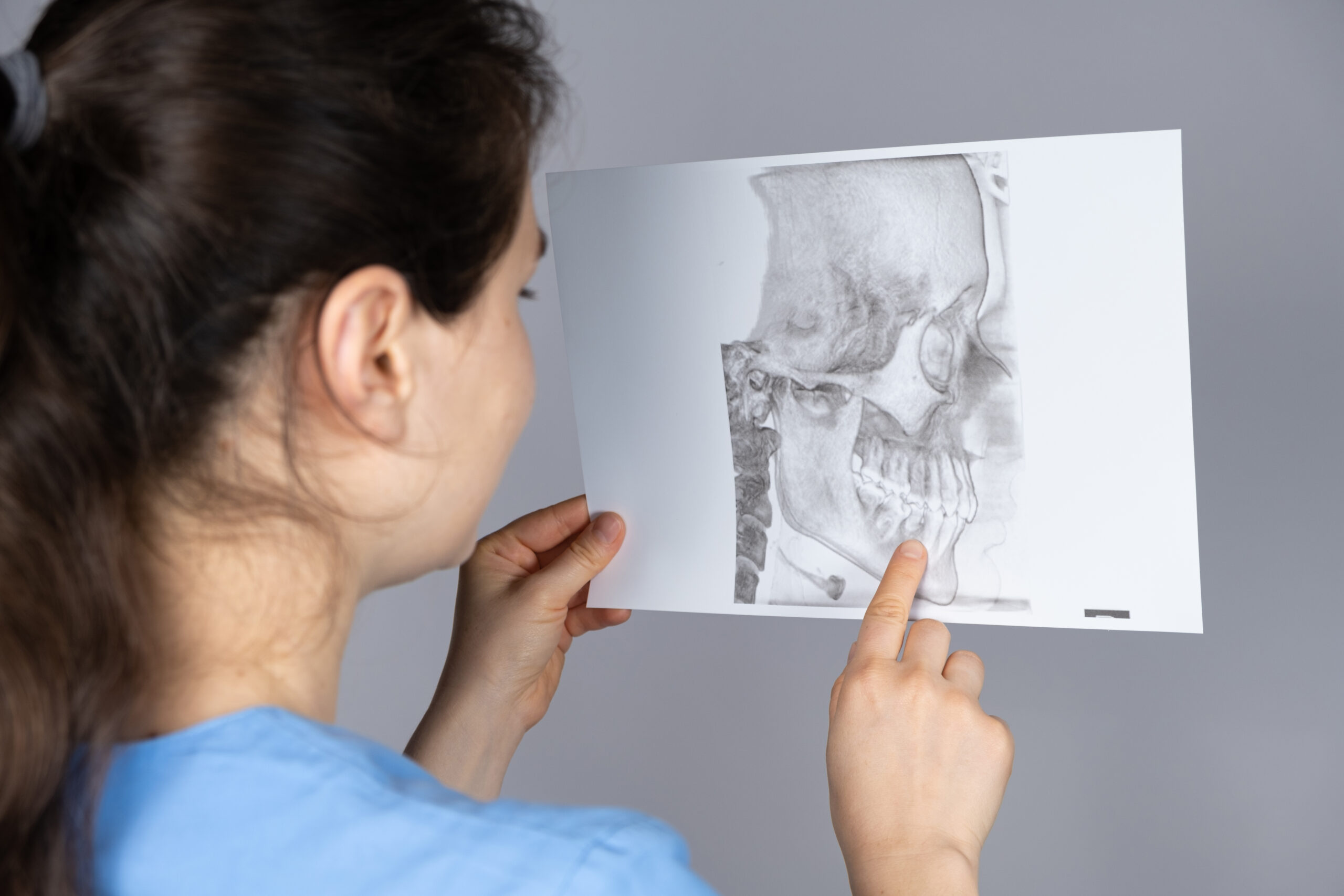Understanding TMD: Symptoms, Causes, and Diagnosis
Today, we’re exploring a topic that affects many but is often misunderstood: Temporomandibular Disorders, commonly known as TMD. This condition can cause discomfort and pain in the jaw area and affect your overall quality of life. In this comprehensive guide, the Gander Smiles Dentistry team will delve into the symptoms, causes, and diagnosis of TMD, offering you valuable insights into this often complex condition.
What is TMD?
Temporomandibular Disorders (TMD) refer to a group of conditions that cause pain and dysfunction in the jaw joint and the muscles controlling jaw movement. The temporomandibular joint (TMJ) acts like a sliding hinge, connecting your jawbone to your skull. Dysfunction in this area can lead to pain and limited movement.
Symptoms of TMD
TMD symptoms can vary widely, ranging from mild discomfort to severe pain. Some common symptoms include:
- Jaw Pain or Tenderness: This is often the most noticeable symptom, especially when chewing or speaking.
- Aching Pain in and Around the Ear: Sometimes the pain might feel like it’s coming from inside your ear, but it’s actually related to the jaw.
- Difficulty Chewing or Pain While Chewing: People with TMD may experience discomfort or pain when eating, which can affect their ability to chew food properly.
- Aching Facial Pain: This can encompass areas beyond the jaw, including the cheeks and the sides of the face.
- Locking of the Joint: In some cases, the jaw joint may lock, making it difficult to open or close the mouth.
- Clicking or Grating Sounds in the Jaw Joint: These sounds might be accompanied by pain or discomfort, though not always.
Causes of TMD
The exact cause of TMD is often difficult to determine because the disorder can result from several factors. Some of the potential causes include:
- Jaw Injury: Trauma to the jaw or the temporomandibular joint can lead to TMD.
- Erosion of the Joint: The joint’s cartilage is damaged by conditions like arthritis.
- Stress: Stress can cause people to clench their jaw or grind their teeth, putting extra pressure on the TMJ.
- Teeth Grinding or Clenching: Known as bruxism, this habit can exert excessive force on the joint.
- Poor Posture: Chronic neck and shoulder tension can affect the muscles around the jaw.
- Genetics: Some people may be more predisposed to developing TMD.
Diagnosing TMD
Diagnosing TMD can be challenging as there is no standard test for it. Diagnosis typically involves:
- Medical History Review: This includes discussing symptoms, past health issues, and any injuries to your jaw.
- Physical Examination: Your dentist will examine your jaw joints for pain or tenderness, listen for clicks or pops, check for problems with jaw movement, and assess bite and facial muscle function.
- Imaging Tests: Depending on the situation, your dentist might recommend dental X-rays, a CT scan, or an MRI to get a detailed view of the bones and soft tissues around the jaw.
Treatment Options for TMD
TMD treatment aims to relieve pain and restore normal jaw function. Treatment options can vary based on the severity of the symptoms:
- Self-Care Practices: These include eating soft foods, applying ice packs, and avoiding extreme jaw movements.
- Stress Reduction: Learning stress management and relaxation techniques can help reduce muscle tension in the jaw.
- Pain Management: Over-the-counter pain relievers and anti-inflammatories can help manage pain and swelling.
- Physical Therapy: Exercises to strengthen jaw muscles, improve flexibility, and promote better jaw alignment can be beneficial.
- Dental Devices: Mouthguards or bite plates can help alleviate discomfort, especially for those who grind their teeth.
- Surgery: In severe cases, surgical interventions might be necessary, although this is typically a last resort.
Living with TMD
Living with TMD can be challenging, but there are strategies to manage symptoms effectively. It’s essential to understand your triggers and work towards minimizing them. Regular follow-ups with your dentist or doctor are crucial for monitoring the condition and adjusting treatment as needed.
How Gander Smiles Dentistry Can Help
At Gander Smiles Dentistry, we’re committed to providing comprehensive care to our patients experiencing TMD. Our experienced team is here to offer diagnosis, treatment options, and personalized care to help you manage your symptoms effectively.
Ready to Address Your TMD Symptoms?
If you suspect you have TMD or are struggling with jaw pain and discomfort, don’t hesitate to reach out to us at Gander Smiles Dentistry. We’re here to help you with a thorough evaluation and to discuss the best treatment options for your situation. Contact us today to schedule your appointment and take the first step towards managing your TMD. Your comfort and health are our top priorities!

